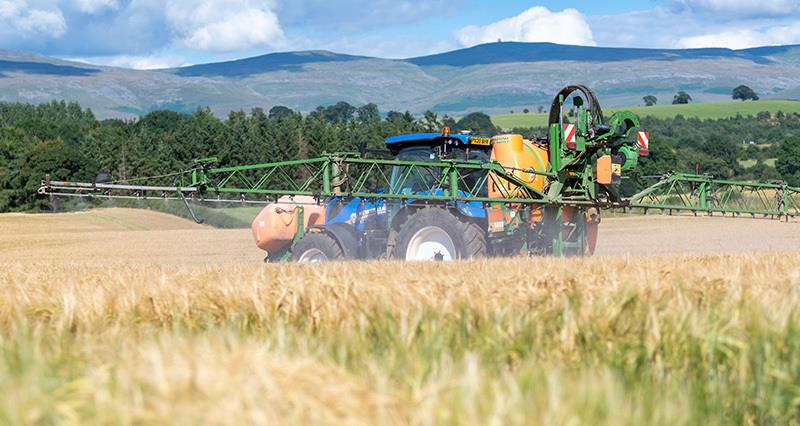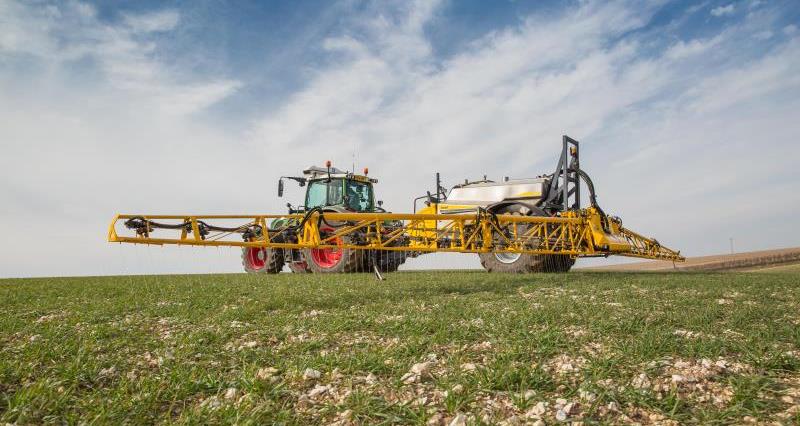Resistance to maximum label rate glyphosate has been found on a UK farm for the first time. The resistance to glyphosate was found in a single field population of Italian Ryegrass on a farm in Kent.
This first case of resistance, announced in January by the UK WRAG (Weed Resistance Action Group), was identified by ADAS, following rigorous investigation, involving re-sampling and re-testing.
In addition to this initial confirmed case, three other samples have now been tested, from Somerset, Essex and North Yorkshire. Two of these have shown significantly reduced control following appropriate doses of glyphosate.
The third population also showed decreased glyphosate sensitivity in tests. These samples would need further testing before they could be designated a confirmed case of resistance, like the Kent case.
All these samples are from very high-risk situations – where large weeds were surviving high rates of glyphosate in the run-up to drilling a relatively late drilling spring crop, in reduced tillage systems.
Resistance found in other countries
Responding to the news, NFU Deputy President David Exwood said: “Glyphosate is an essential product to help control weeds before planting crops, especially in regenerative, no-tillage or minimum tillage systems, approaches which are beneficial for climate change mitigation and protecting soils.
“So it’s concerning that there is now a case of glyphosate resistance in the UK in one of our arable weeds.”
Cases of glyphosate resistance have been found in North and South America, and in Europe, so in some ways this new case in the UK is not surprising.
“This latest discovery hammers home the importance of glyphosate stewardship on farm.”
NFU Deputy President David Exwood
“Glyphosate resistance has been found in Spain and Italy in recent decades, but neither escalated into widespread problems and we hope the UK will follow a similar pattern” the NFU Deputy President added.
“However, this latest discovery hammers home the importance of glyphosate stewardship on farm to minimise the risk of further resistance developing in the UK, where glyphosate plays a vital role in enabling farmers to produce high-quality, affordable food and deliver environmental sustainability,” he said.
Vigilance is key
While glyphosate is a key component of regenerative, reduced or no-till approaches, the WRAG states that glyphosate resistance concerns are not a barrier to the adoption of these approaches.
However, the pressure and increased reliance on glyphosate in such systems must be managed.
In all systems monitoring and proper focus on glyphosate stewardship is essential.
Farmers and agronomists need to be vigilant and take appropriate action to minimise the further development of resistance. The vigilance involves monitoring and investigating with your agronomist, manufacturers and researchers any suspicious cases of weeds surviving glyphosate application.
Action to prevent further resistance developing then relies on the pro-active use of the WRAG Guidelines for minimising the risk of glyphosate resistance in the UK.
4 simple messages
First published in 2015, and informed by AHDB and industry research, this guidance remains highly relevant.
It includes four simple key messages:
1. Prevent survivors
Remove survivors to reduce seed spread. Report suspected survivors to your agronomist or product manufacturer. Avoid repeat applications to the same (surviving) weeds.
2. Maximise efficacy
Apply the right dose rate (reduced rates increase the risk of reduced efficacy), at the right time, in the right conditions.
3. Use alternatives
Use non-chemical options, including cultivation, where practical, and use other effective subsequent herbicides.
4. Monitor success
As with all IPM – monitor the success of control strategies carefully and frequently. Get any survivors tested and discuss potential resistance issues with your agronomist or product manufacturer.
Testing programme
ADAS is currently carrying out free, targeted resistance testing of Italian ryegrass (Lolium multiflorum) populations surviving glyphosate application prior to drilling a spring crop.
The testing window is open now until 30 April 2025.
View this detailed guide available for instructions on how to access the testing, and how to identify, collect and send your sample which essentially involves digging up and sending in around 30 suspect plants for testing.
The testing will include:
- farmers/agronomists completing a questionnaire to evaluate risk
- farmers/agronomists digging-up suspect Italian Ryegrass plants and sending them to ADAS for testing
- test results will then be reported back to the farmer/agronomist within weeks, so action can be taken if necessary
- production of regional summaries (individual test results/locations will be kept confidential).


